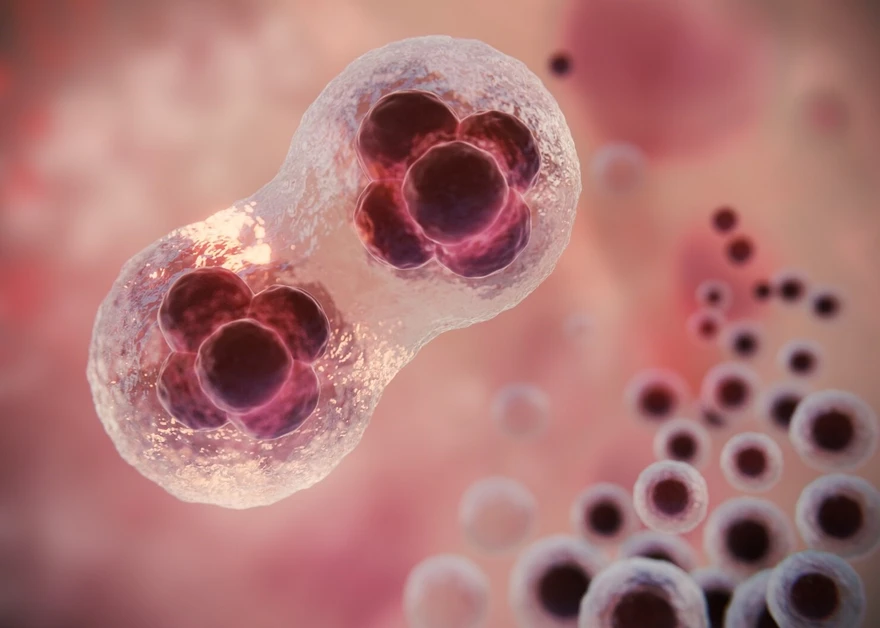Preventive Healthcare
Dried Blood Spot Test (DBS Test): Overview, Benefits, Procedure & Results
14797 Views
0

The concept of collecting and analyzing dried blood samples dates back several decades, but it was the advancements in technology and medical science that transformed it into the reliable and versatile diagnostic tool it is today. A Dried Blood Spot (DBS) test involves collecting a small blood sample on a special filter paper card, allowing for convenient and non-invasive sample collection and transportation. This innovative method has revolutionized healthcare, enabling a wide range of medical tests to be performed efficiently and effectively.
Dried blood spot testing is done mainly in newborns for NBS (newborn screening) to find congenital and inherited metabolic disorders.
What is DBS Testing?
This test includes collecting capillary blood samples from a finger prick on a filter paper and drying them before sending them for clinical testing.
DBS testing can help remove barriers to collecting blood samples for testing, such as difficulty in finding venous access, the requirement to centrifuge blood samples after collection, and more.
What Are the Benefits of DBS Testing?
DBS testing offers several advantages over traditional blood collection methods:
- Non-invasive: Requires only a small finger prick, making it less painful and less stressful for patients, especially children and the elderly.
- Convenient: Sample collection can be performed at home or in remote locations, increasing accessibility.
- Safe: Dried blood inactivates pathogens, reducing biohazard risks for healthcare workers.
- Cost-effective: Requires smaller blood volumes and less laboratory processing.
- Stable: Dried blood spots can be stored and transported at room temperature, eliminating the need for refrigeration.
DBS Test Procedure
The DBS test procedure is relatively simple. Here’s a general overview of the process:
Sample Collection
- Preparation: The heel is cleaned with an alcohol swab and is allowed to dry completely.
- Blood collection: A sterile lancet designed for heel pricks is used to obtain a small blood drop.
- Application: The blood drop is carefully applied to the designated circle on the DBS card.
- Drying: The blood spot is allowed to dry completely at room temperature.
- Packaging: The dried blood spot card is placed in a sealed envelope or bag with a desiccant to prevent moisture damage.
Sample Transportation and Storage
-
DBS cards are relatively stable and can be stored at room temperature.
-
For long-term storage or transportation, the cards are kept in a cool, dry place.
Laboratory Analysis
-
The DBS card is sent to a laboratory for analysis.
-
Laboratory technicians extract the dried blood from the filter paper.
-
The extracted sample is subjected to various tests depending on the purpose of the test.
Uses of DBS in Newborn Screening (NBS)
Dried Blood Spot (DBS) testing is a cornerstone of Newborn Screening (NBS) programs worldwide. This simple yet effective method allows for the early detection of a wide range of congenital and metabolic disorders.
- DBS testing enables the identification of numerous conditions, including phenylketonuria (PKU), hypothyroidism, cystic fibrosis, sickle cell disease, and many others.
- Early diagnosis and intervention can prevent severe complications and improve outcomes.
- Compared to other screening methods, DBS testing is relatively inexpensive and efficient.
Conclusion
The Dried Blood Spot (DBS) test has emerged as a valuable tool in modern healthcare, offering a convenient, non-invasive, and cost-effective method for collecting and analyzing blood samples. Its application in newborn screening has been particularly transformative, enabling early detection of critical congenital disorders and improving the overall health and well-being of infants. While DBS technology has made significant strides, ongoing research and development continue to expand its potential for diagnosing and managing a wider range of medical conditions.













1701259759.webp)









 WhatsApp
WhatsApp